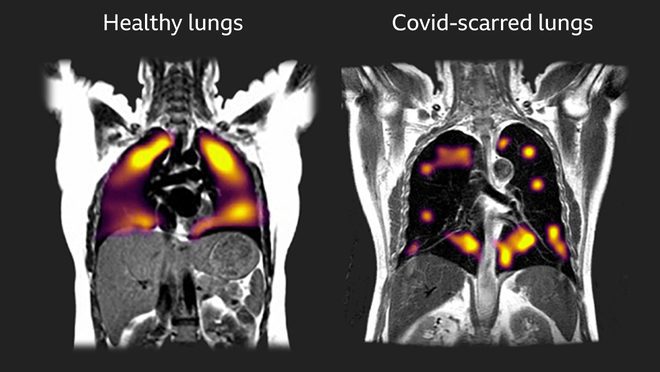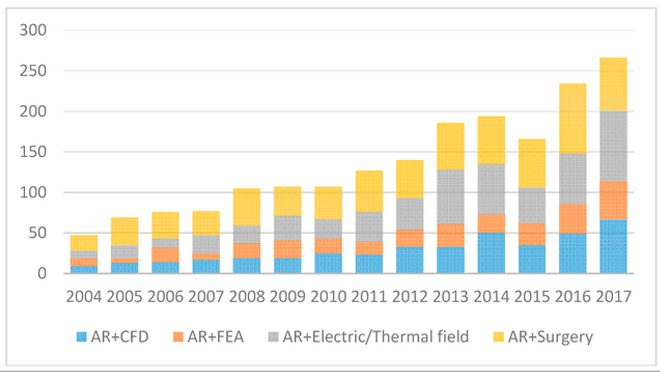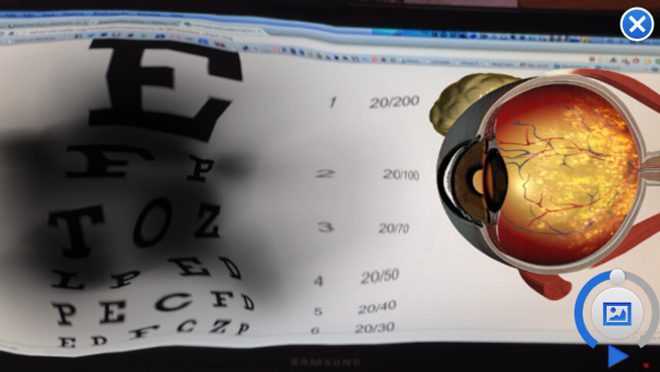Healthcare has long been at the forefront of innovation. The integration of different technologies has helped transpose and shape healthcare as we know it today.
Technology such as Magnetic Resonance Imaging (MRI) is a medical imaging technique that uses radio waves and magnetic field gradients to generate images of organs and anatomy. Without MRI technology, today, during a pandemic, it would be impossible to understand the full effects of the COVID-19 virus on the human body, especially the lungs.

Considering how paramount MRI technology is today exhibits a clear demonstration of how its integration has improved healthcare. Following on from its success, numerous technologies have been adopted by the medical sector to provide better insights and care.
In the year 2020, Augmented Reality (AR) has seen an unprecedented amount of growth. It is estimated that 598 million AR units will be available in 2021, with a projected growth amount of 1.73 billion by 2024. AR has the potential to revolutionize healthcare, taking it one step further.
Augmented Reality works by integrating digital information placed into the user’s environment in real-time. The technology adds graphics, effects, sound, touch feedback, and text to enhance the user experience. The use of AR and its use of cameras and sensors overlay information from the digital realm directly into our environments, having significant potential to impact everyone’s lives through the pharma and healthcare industry.
How can AR impact healthcare?
Considering how far AR technology has already developed other aspects of life, such as gaming and interior design, here’s a look at how it can be used to better our quality of life.
Education
The level of education provided to healthcare professionals will be reflected in their work and care for patients. AR has the qualities to enhance the teaching of the human body received by students to build a reliable workforce in the health sector worldwide.
HoloLens App, created by Microsoft, helps students and clinicians visualize the human body in a spectacular yet straightforward way. The app showcases all the vital organs in our body, and how they work and interact with one another to make up our anatomy.
Surgeries can also be made safer thanks to AR, considering their high mortality rates in the past. AR technology can help surgeons with the necessary information and insight they need to help save a patient’s life. AR can project the location of vital organs in the patient’s body during a procedure and offer diagnosis reports. Its use in surgery is growing in popularity as the years go on, evident from the graph below.


AR can also help nurses find veins for a more comfortable extraction of blood for patients. In most cases, IVs (Intravenous Injections) miss the vein in the first go. However, the use of AccuVein, an AR scanner that projects veins present in the patient’s body over the skin, means nurses will be able to assess which vein to place the IV into to get the best flow rather than hope for the best which can result in a sore arm.
Chronic illness
The positive effects of AR technology in healthcare will benefit healthcare workers and patients. AR is proving to be a beneficial technology rapidly changing the fundamentals of personal care and education for patients in understanding, measuring, and controlling their health.
Accurate diagnosis is imperative when helping patients. Identifying where the issues lie and how best to treat a patient can sometimes be difficult if the patient finds it hard to give details regarding their symptoms. AR can help patients visualize their symptoms by being shown a simulation of a patient suffering from similar and specific conditions that could be relatable. EyeDecide, a medical app, uses the camera on smartphones to display simulation conditions providing better analysis.


Once a diagnosis is made, AR has the potential to help patients manage their conditions without continually needing to attend appointments, allowing clinicians to mentor them through AR procedures such as taking insulin injections daily to better control diabetes, for example.
Google Glass has proven successful to work in this way when used in Australia to guide new mothers with breastfeeding. Counselors could see what the mother was doing and provide them with techniques and advice remotely.
The intervention of AR technology will also improve aspects of our lives when considering the bigger picture. As we age, we tend to have more issues and chronic diseases, hence an increasing health insurance premium is expected. AR will give patients the control they need over their health and bring down insurance plans.
Provide innovative drug information
In theory, it can be hard to understand the role of drugs and how they work in our bodies once administered. AR has the potential to bring this process to life by creating a visual journey and better understanding. Patients, clinicians, and students will be able to see how a drug works in 3D, increasing education and fostering the development of new drugs.
AR technology is not only transforming healthcare but it has also changed and developed a number of other industries, making it versatile. As AR slowly integrates its way into health care, other future tech such as Virtual Reality (VR) will be sure to enhance our outlook and experience in healthcare further. The pandemic has birthed new challenges in creating online GP appointments, which AR could take one step further for a unique futuristic experience.




